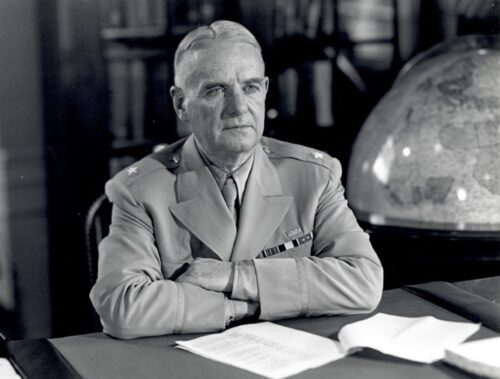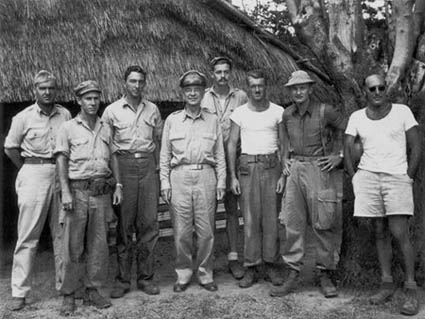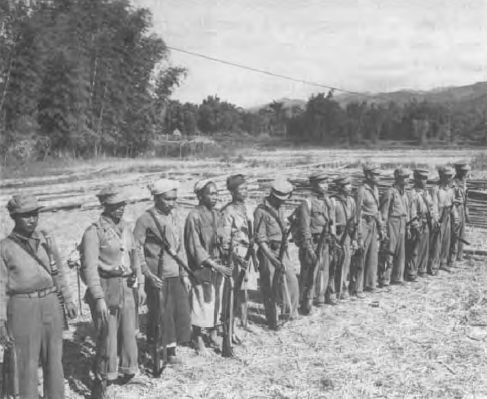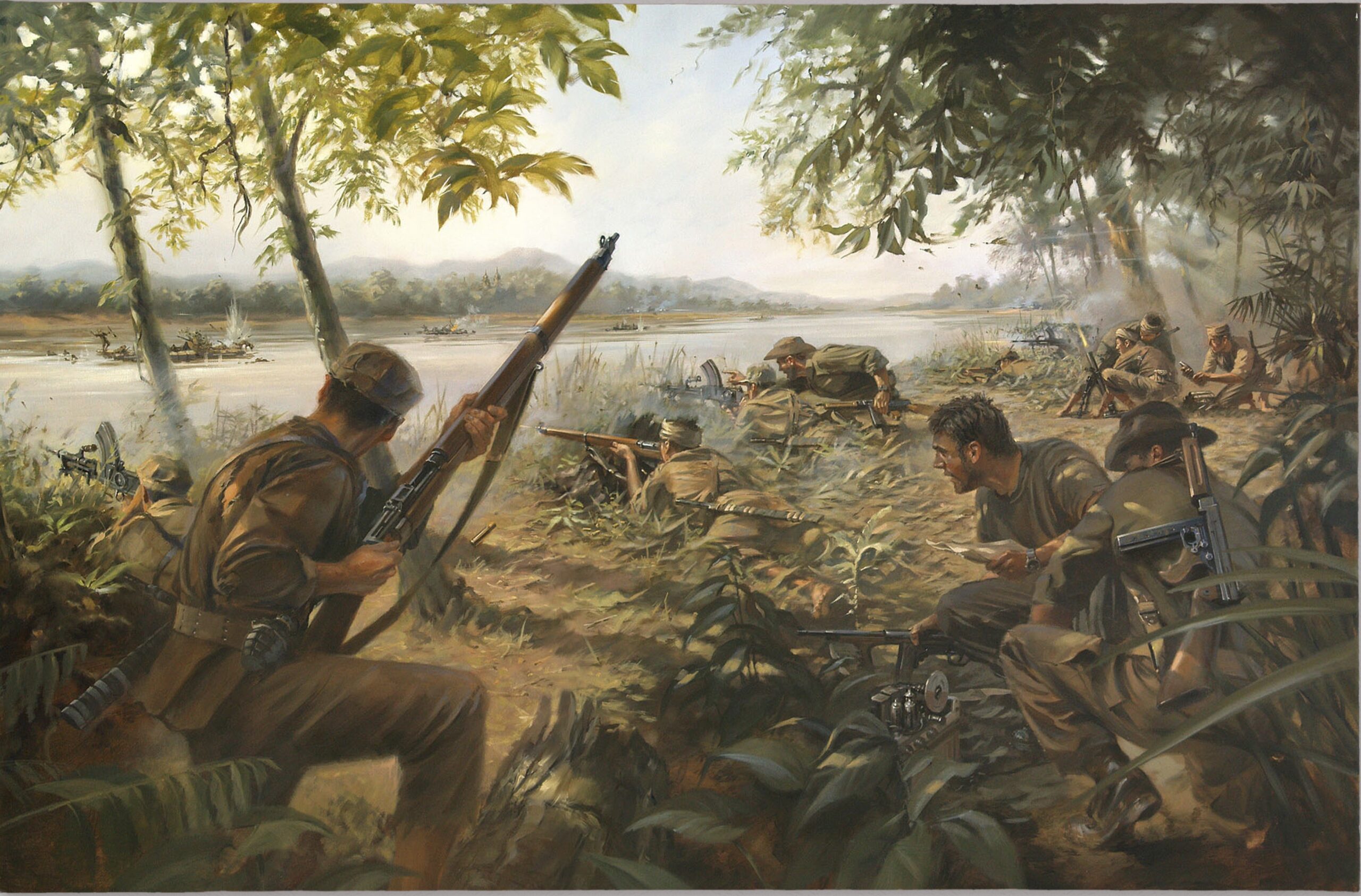Irrawaddy Ambush.Stuart Brown 2010 Oil on canvas Donated courtesy of Michael DeSombre. The painting depicts one of OSS Detachment 101’s many guerrilla operations staged to disrupt Japanese supply and reinforcement routes in Burma. Credit: Central Intelligence Agency.
The Office of Strategic Services (OSS) was the intelligence agency of the United States during World War II. Formed as an agency of the Joint Chiefs of Staff (JCS), the OSS coordinated espionage activities behind enemy lines for all branches of the United States Armed Forces. Its mission encompassed intelligence gathering, sabotage, and unconventional warfare.
The OSS. led by William J. “Wild Bill” Donovan, operated globally, recruiting agents, conducting covert operations, and providing critical intelligence to military commanders. It employed a diverse group of individuals, including linguists, spies, analysts, and resistance fighters.
The OSS played a pivotal role in gathering information about enemy capabilities, assessing threats, and supporting resistance movements. Its legacy extends beyond World War II, as it laid the groundwork for the establishment of the Central Intelligence Agency (CIA) in 1947.

OSS Detachment 101
Detachment 101 was a unit of the OSS that operated in the China-Burma-India Theater of World War II. The unit was activated on April 14, 1942, and was charged with gathering intelligence, harassing the Japanese through guerrilla actions, identifying targets for the Army Air Force to bomb, and rescuing downed Allied airmen.
The Detachment was never larger than a few hundred Americans, so it relied on support from various tribal groups in Burma, particularly the Kachin people. The best-known resistance force was known as the Kachin Rangers and was under the command of Carl F. Eifler.

The Kachin Rangers
The Kachin Rangers were a group of indigenous guerrilla fighters who worked with the OSS Detachment 101 during World War II. The Kachin people were a vital part of the Detachment’s success. The Kachin Rangers were recruited from the Kachin tribes of northern Burma and were commanded by American officers from the OSS.
The Kachin Rangers were instrumental in the Detachment’s efforts to disrupt Japanese operations in Burma. They were trained and led by the Americans and were responsible for gathering intelligence, identifying targets for the Army Air Force to bomb, and rescuing downed Allied airmen. The Kachin Rangers were fierce fighters and were known for their bravery and determination in the face of overwhelming odds.
The Kachin Rangers played a significant role in neutralizing a large enemy force and ultimately forcing the Japanese to relinquish control of Burma, thus ending Japan’s threat to invade India. Their sacrifices and contributions to the war effort were invaluable and remain a testament to their courage and unwavering commitment during World War II.

Impact of Detachment 101
By the time of its deactivation on July 12, 1945, Detachment 101 had achieved impressive results. According to official statistics, the detachment suffered a loss of approximately 22 Americans. However, they managed to kill 5,428 Japanese and rescue 574 Allied personnel2. These brave individuals operated in the jungles of Southeast Asia, disrupting Japanese operations and contributing significantly to the overall war effort.
The Detachment’s efforts opened the way for Stilwell’s Chinese forces, Wingate’s Raiders, Merrill’s Marauders, and the great counterattack against the Japanese Imperial lifeline. The unit was awarded a Presidential Distinguished Unit Citation by President Dwight Eisenhower on January 17, 1956, who wrote: “The courage and fighting spirit displayed by its officers and men in offensive action against overwhelming enemy strength reflect the highest tradition of the armed forces of the United States.”
Resources
Office of Strategic Services Society
OSSSociety.org
USASOC OSS Website (Official US Army Website)
www.soc.mil/OSS/index.html
Central Intelligence Agency
CIA.gov
*The views and opinions expressed on this website are solely those of the original authors and contributors. These views and opinions do not necessarily represent those of Spotter Up Magazine, the administrative staff, and/or any/all contributors to this site.

Kachins helped allies also to China to chase out Japanese. Today, Kachins are struggling to liberate Burma from the brutal military dictator. The members of allies also China should give hands to the Kachins. We feels that we are neglected.